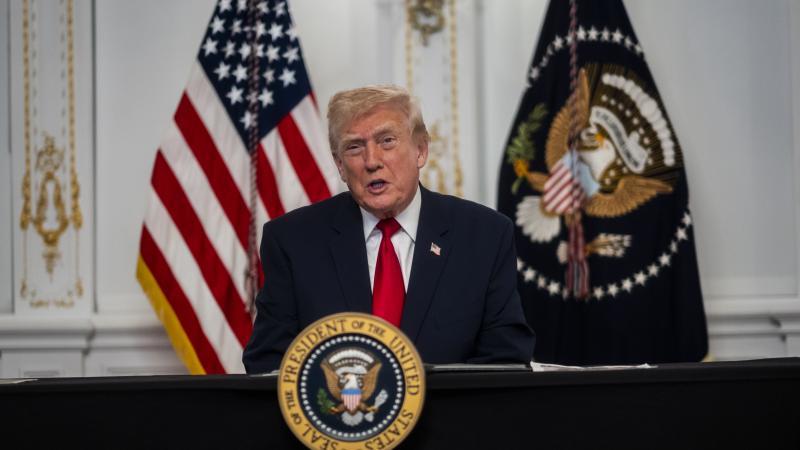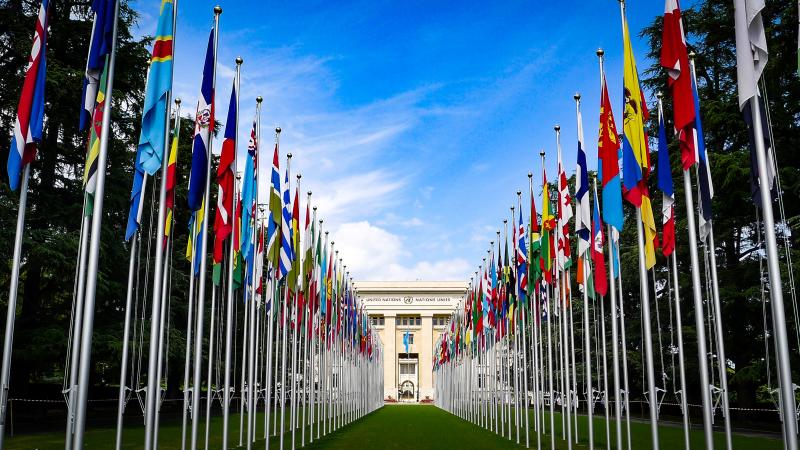University of Texas sued for First Amendment retaliation against faculty for criticizing DEI
Professor Richard Lowery cites chilling effects following his criticism of politicized spending. Texas A&M files to dismiss same professor's lawsuit against racial and gender criteria in hiring and salary.
A finance professor who sued Texas A&M University for race- and gender-based criteria in hiring and salary is now going after his own institution for alleged First Amendment retaliation based on his criticism of its diversity, equity and inclusion efforts.
Richard Lowery's new lawsuit claims the University of Texas threatened sanctions to silence his repeated criticism of its "hijacking" of the Liberty Institute, a campus free-market think tank, and his calls for Republican lawmakers to intervene in UT's DEI efforts, including ideological "filtering criteria" in hiring.
The right-leaning National Association of Scholars also called out UT's DEI efforts last month in a report on the Austin flagship as a whole and an op-ed about the medical school specifically.
Both may have played a role in Republican Gov. Greg Abbott's Feb. 4 memo reminding state agencies they are not allowed to change "employment practices based on factors other than merit" or use taxpayer money "to fund offices, departments, or employee positions dedicated to promoting forbidden DEI initiatives."
TAMU filed its second motion to dismiss last week in response to Lowery's amended class-action suit on behalf of potential white and Asian male applicants, challenging his legal standing and relevance of his evidence of supposed discrimination.
The suits were filed by different legal groups in different Texas federal courts: former Trump White House adviser Stephen Miller's America First Legal against TAMU in Houston, and former Federal Election Commission chairman Bradley Smith's Institute for Free Speech against UT in Austin.
Lowery's UT lawsuit follows similar litigation against California's Kern Community College District by the leaders of Bakersfield College's Renegade Institute for Liberty.
The plaintiffs claim the district created a false basis to fire them for "unprofessional conduct" against leaders of an ideologically opposed campus institute. A trustee compared the Renegade leaders to livestock who need to be culled at a December board meeting.
Much like the plaintiffs in the KCCD case, Lowery claims he was simply criticizing UT administrators "for their use of public funds for ideological indoctrination," including through the business school's Global Sustainability Leadership Institute, "and their hostility to viewpoint diversity and academic freedom."
They responded by "threatening his job, pay, institute affiliation, research opportunities, academic freedom ... equating his opinions with inciting violence" and refusing to "retract" a request for "police surveillance" of Lowery's social media by a Sustainability Institute staffer.
Lowery publicly criticized UT's program to instill critical race theory principles in white preschoolers and its DEI grants that lack even the "pretense of [being] research projects." He accused UT of "perpetuating racism" through affirmative action.
Going after the administration for co-opting the Liberty Institute, which he and fellow business school professor Carlos Carvalho set up to resist DEI's incursion into "evidence-based disciplines," put a bigger target on both of their backs, the suit claims.
Their project, initially funded by the Legislature, lost its independence, underwent a rebranding as "Civitas" and was put in the hands of a "critical race theorist," Lowery wrote last summer. He accused UT President Jay Hartzell of lying to lawmakers "to minimize viewpoint-diversity problems at UT" and asked Gov. Abbott and Lt. Gov. Dan Patrick in a tweet why the Republicans put Texas universities on the path to "full Maoist."
Carvalho and Lowery also lead the business school's Salem Center for Public Policy as executive director and associate director. One of their events featured former President Trump's COVID-19 adviser Scott Atlas.
Administrators pressured Carvalho last summer to rein in Lowery in the name of "civility" or risk losing his position in the Salem Center and suggested Lowery could be removed without Carvalho's approval, according to the suit.
Lowery contrasted the center's openness to debate with the Sustainability Institute's perceived one-sided events, tweeting one of its flyers in August. The institute's managing director Meeta Kothare emailed Lowery's dean, Lillian Mills, saying she was worried about "the safety of our events" but also relieved that Lowery "has not tagged some politician" this time.
The email chain reached Finance Department Chair Sheridan Titman, who suggested Lowery sponsor an event with the Sustainability Institute. Lowery responded by marking his Twitter account private and stopped tweeting altogether. The request for police surveillance included screenshots of his once-public tweets, according to the suit.
To avoid further retaliation, Lowery refrained from criticizing UT's infringements at a Stanford conference he helped organize. The suit says he also asked to keep private an October symposium he helped organize, "Reversing the Ideological Capture of Universities," but most of the day's video is available, including his panel.
UT's actions are chilling Lowery's speech by threatening his $20,000 annual stipend at the Salem Center and supervisory role at the Policy Research Lab as well as portraying him as a physical threat to Sustainability Institute events, he claims. By contrast, UT faculty can "comment freely in support of DEI initiatives," including those subsidized by the provost's office.
The university didn't answer Just the News queries. The Austin American-Statesman reported that UT declined to comment on pending litigation and that administrators didn't respond to queries.
TAMU's motion to dismiss Lowery's amended class-action alleges that his evidence for legal standing reaffirms "he has never applied to TAMU and cannot identify any victim of discrimination."
His argument is also inconsistent because he won't seek hiring at TAMU because of its DEI policies but has admittedly applied to the University of Florida despite its similar DEI efforts, the motion says, claiming the only new evidence Lowery offers has no bearing on hiring decisions in his field at TAMU.
The university asked the Houston federal court to reject Lowery's request to "act as its HR czar by 'pre-clear[ing]' all hiring decisions."
The Facts Inside Our Reporter's Notebook
Documents
Videos
Links
- sued Texas A&M University for race- and gender-based criteria
- Richard Lowery's new lawsuit
- report on the Austin flagship
- op-ed about the medical school
- Greg Abbott's Feb. 4 memo
- similar litigation against California's Kern Community College District
- A trustee compared the Renegade leaders to livestock
- UT's program to instill critical race theory principles
- "perpetuating racism" through affirmative action
- Lowery wrote last summer
- "to minimize viewpoint-diversity problems at UT,"
- former President Trump's COVID-19 advisor Scott Atlas
- Twitter account
- most of the day's video is available
- subsidized by the provost's office
- Austin American-Statesman
















